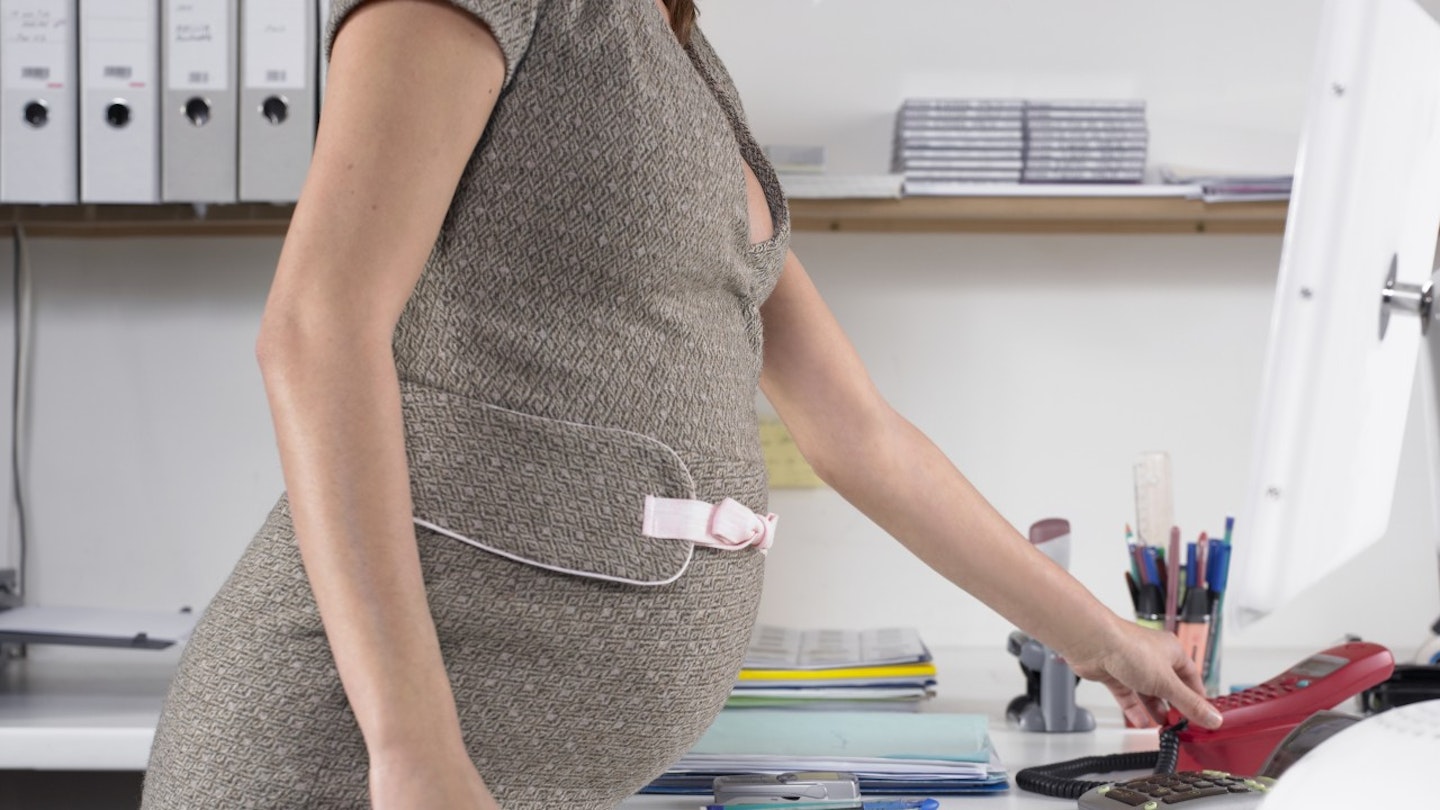Doing the old 9-5 (or later) with a bump? Get organised and take care of yourself to boost your working day
Whether you’re at the start of your pregnancy (aka the flowing-shirts-to-not-give-the-game-away stage) or about to head off on maternity leave, adjust your work habits to ease the pressure.
Choose a confidante
In the early months when you may be keeping schtum, it could help to confide in a close colleague. ‘It depends on your relationships, and you may want to tell your manager,’ says career coach Fiona Clark.
‘Obviously it needs to be someone you trust, but it can take the pressure off and give you support if someone understands what you’re going through.’
Don’t keep quiet…
If you’re struggling. Perhaps it’s the nausea when you’re squashed on the train, or maybe having to stand at a till.
‘If you can go to your manager with a solution, that’ll help you both,’ says Fiona. ‘Perhaps you can come in later and leave later to skip rush hour, or work from home.’
Look after yourself
Yes, this means taking your lunch break, staying hydrated, eating properly (including breakfast) and staying active with breaks and fresh air.
And don’t forget your evenings – they’re your recharge time so leave some free in the week.
Switch your pick-me-up
Official advice recommends you limit your caffeine intake in pregnancy to 200mg a day, so that’s around one cup of filter coffee, two cups of instant coffee or two mugs of tea.
The perfect time for coffee is between 9.30 and 11.30am, according to US neuroscientist Steven Miller, who argues that’s when our levels of the alert hormone cortisol are dropping so we need a boost.
Had your quota and need a mid-afternoon lift? Find a caffeine-free alternative, whether it’s herbal tea or coconut water.
Get list happy
OK, the jury’s still partly out on the whole pregnancy brain idea but if you are feeling less focussed or a bit scattier now, become a list queen.
The jury’s still partly out on the whole pregnancy brain idea but if you are feeling less focussed or a bit scattier now, become a list queen
‘You know what works for you and keeps you organised, but I made constant notes on my phone,’ says Fiona.
And if you know you’re less tired or more alert at a certain time of day, do more challenging jobs then.
Be humour smart
You have a bump – and suddenly your colleagues are being a bit too easy on you with your workload or not expecting you to do tea duty.
‘Keep it light, and make a joke about how you can still manage that task,’ says Fiona.
‘But while humour is a great way to handle awkward situations, don’t over-use it by putting yourself down because of your pregnancy – it could undermine you.’
Prep for mat leave
It depends on your role, but be proactive with your maternity leave. ‘Take control of the time line, so ask if you want to help hire your cover, or make sure you’ve diarised your handover,’ says Fiona.
These things always take longer than you think (hello, day-before-you-go-away rush…) so factor in a few weeks to stagger making your notes, including time in case your baby comes earlier.
What are your work tips for pregnancy? Let us know on the comments board below.
